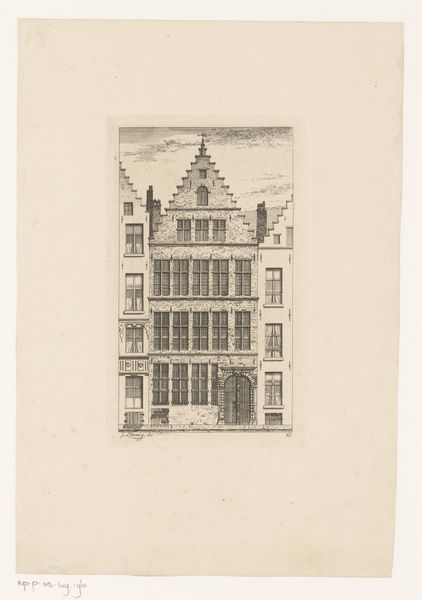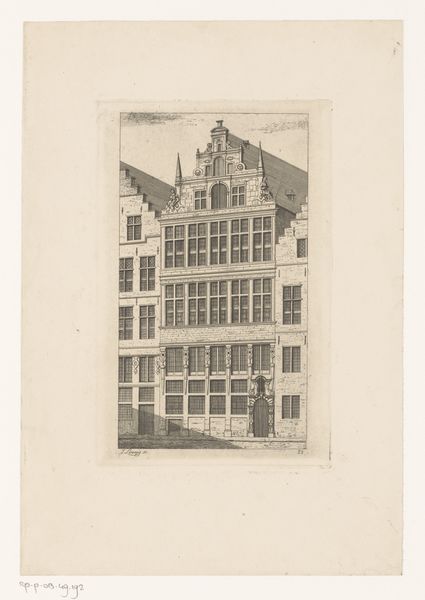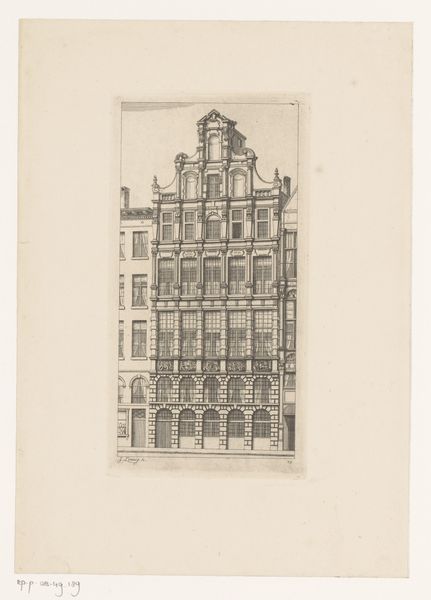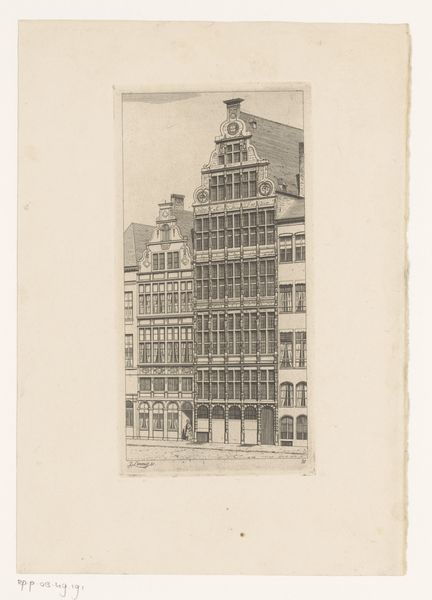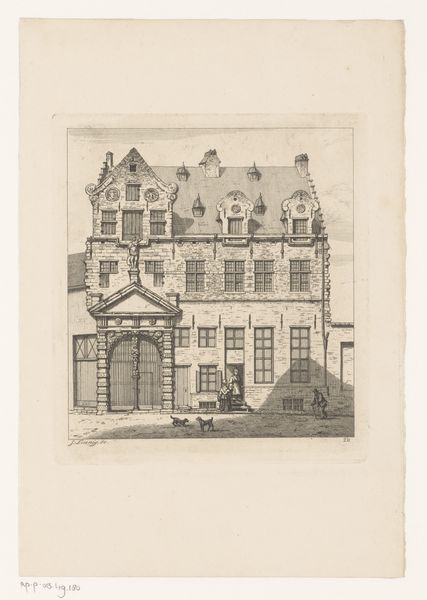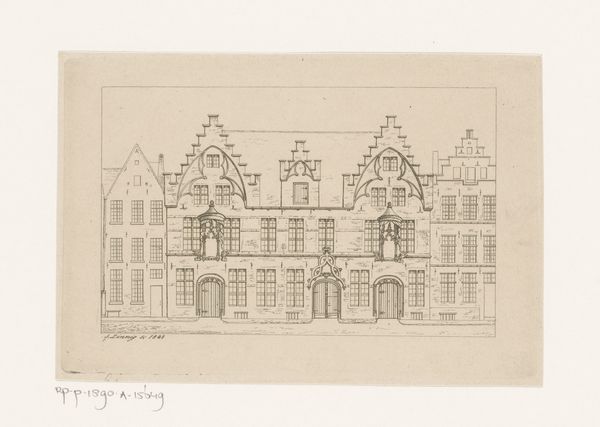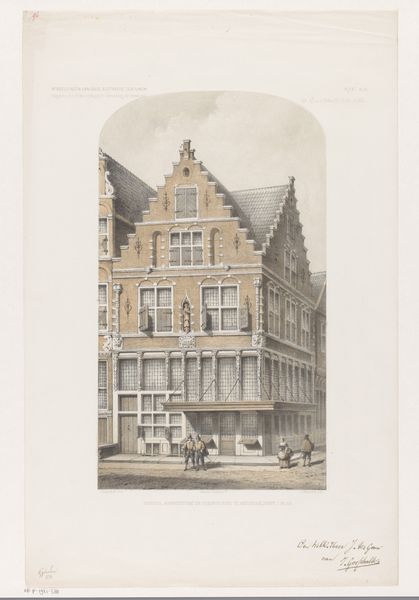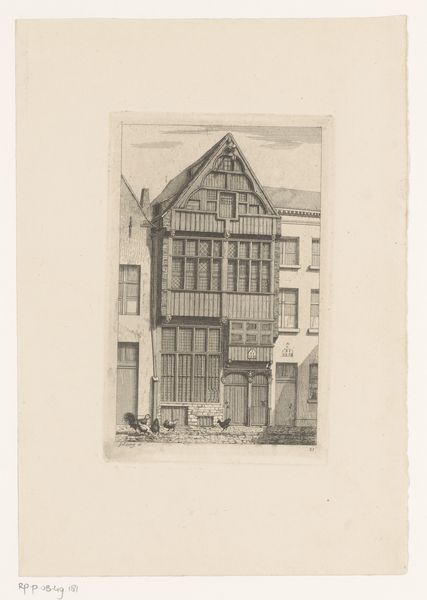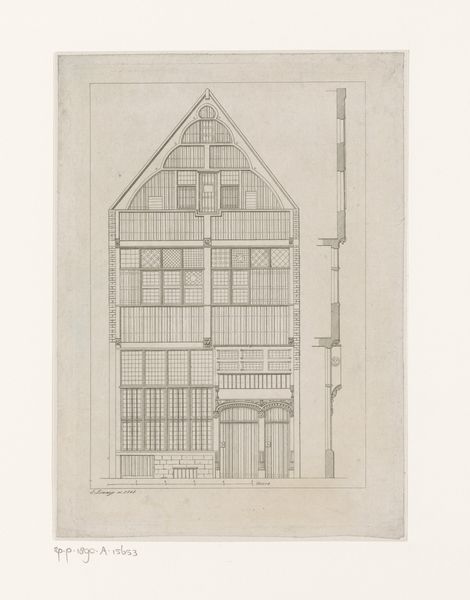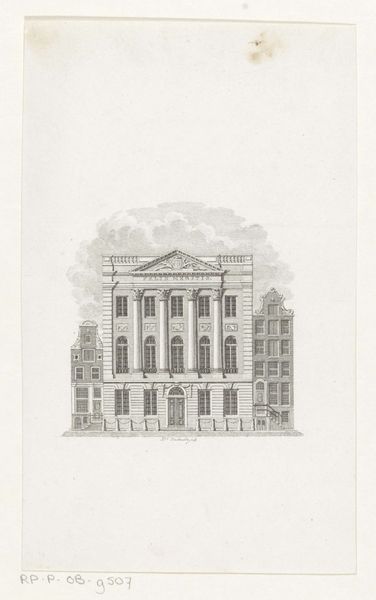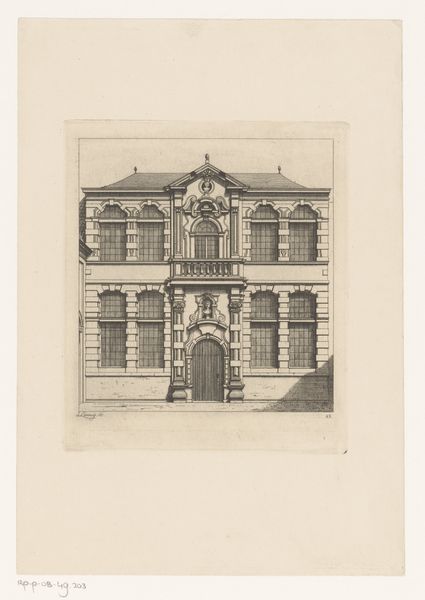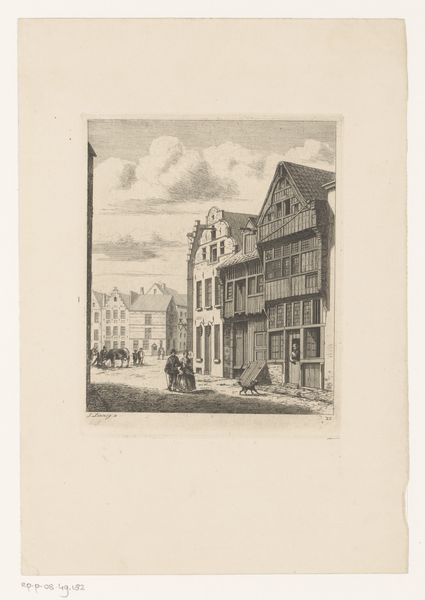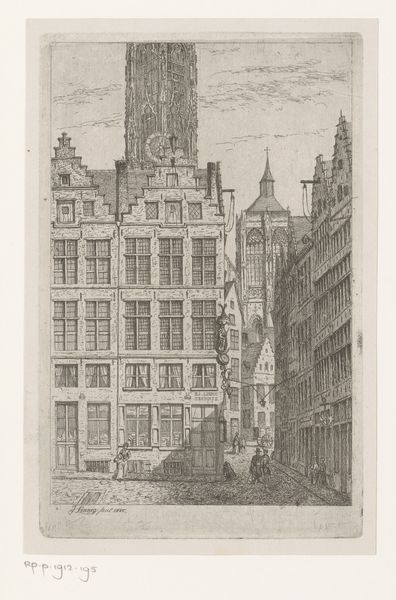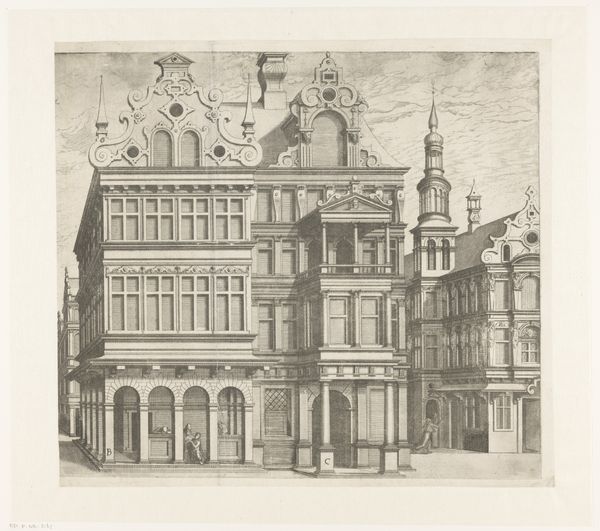
drawing, print, etching, architecture
#
drawing
# print
#
etching
#
etching
#
pen-ink sketch
#
cityscape
#
street
#
architecture
#
building
Dimensions: height 180 mm, width 107 mm
Copyright: Rijks Museum: Open Domain
Curator: Before us, we have Jean Théodore Joseph Linnig’s “Huis van het lakengilde op de Grote Markt in Antwerpen,” an etching from 1868, which depicts the Cloth Guildhall on the Grand Square of Antwerp. Editor: The first thing I notice is the intricacy; all those lines create such detail. There is an austere, almost solemn feel about it, and the symmetry of the building draws you into it, despite the grey rendering. Curator: The Cloth Guildhall was more than just architecture; it was a center of economic and social power for the city’s textile merchants. Its prominence on the Grand Square underscored its central role in Antwerp’s identity, but Linnig captures more than a facade; he presents a symbol of trade and civic life in Belgium. Editor: You know, guilds themselves were powerful symbols, representing solidarity, mastery, and regulated access to economic opportunities. This building then visualizes and legitimizes that authority. Do you see any symbolism within the building that hints at these different roles? Curator: Absolutely! The regularity of the windows, perhaps subtly nodding toward ideas of standardization and industrious labor within each floor of that guild house. I wonder how deliberate Linnig’s decision was to keep the doors closed and the inhabitants absent. That decision reinforces our understanding of economic isolation and privilege within society at this time. Editor: It is a powerful study in how visual language shapes perceptions of social structures. Curator: It’s fascinating how an etching, with its seemingly limited tonal range, can still convey such depth and commentary about the societal and historical landscape of the 19th century. It highlights the stories etched into the very fabric of urban spaces. Editor: It makes you appreciate the narratives that objects carry, beyond what appears immediately visible. Each of the small components is a brushstroke to reveal the symbolic narrative imbued in this Guildhall image.
Comments
No comments
Be the first to comment and join the conversation on the ultimate creative platform.
